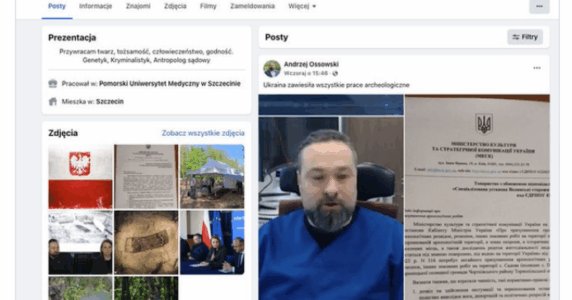Navigation and useful materials
The Centre for Strategic Communication and Information Security analyzed the publications of online media in India and Indonesia based on the monitoring conducted by the Ukrainian social startup LetsData in February 2023 to find out the level of influence of Russian propaganda in the studied countries.
Methodology: using machine learning, publications were collected with at least one mention of Ukraine and/or the war in Ukraine in the online media of the countries studied. For each country, the most visited online media sites (also considering those that share pro-Russian rhetoric), TV channels, and newspapers that have an online version were selected. Data collection and analysis were conducted in the original language. Preparation and processing of data was conducted in the Python programming language. Text processing was based on content analysis.
The study presents only those narratives and messages that reproduce Russian propaganda, which does not exclude the presence of productive and neutral narratives in the media of the analyzed countries.
Common Russian Narratives in India’s Online Media
The most active in February were messages that were consonant with Russian propaganda on military assistance to Ukraine. This trend has been quite common since January 2023 in many regions of the world, for example, in African countries, whose media landscape has been recently studied by the Centre for Strategic Communication.
In India, in particular, such messages emphasized that “military assistance to Ukraine threatens with escalation on the part of Russia.” For example: “The Kremlin: Ukrainians will suffer if the West sends fighters to Kyiv,” “Ukraine receives numerous tanks from Western allies, which will be the impetus for a new Russian offensive, which should begin no later than spring,” and “NATO should stop supplying Ukraine with heavy weapons, as the alliance is approaching participation in the conflict.”
The latter message, by the way, was reinforced by the simultaneous spread of the narrative that “NATO is a part of the ‘Russian-Ukrainian conflict’,” such as: “The Kremlin: NATO is increasingly involved in the Ukrainian conflict” and “NATO should not be part of the Russian-Ukrainian conflict.”
A separate narrative regarding the “consequences” of the supply of weapons to Ukraine was that “the supply of weapons to Kyiv may result in a global nuclear catastrophe.”
Moreover, in February, it was mentioned that “NATO and the United States are getting weaker because of supporting Ukraine,” for instance: “NATO allies are concerned about the reduction of ammunition stocks, trying to prevent Ukrainian forces from opening fire” and “the United States cannot continue doing ‘everything possible’ for Ukraine in the war.”
Such messages were reinforced by the narrative about “weak public support for Ukraine in Europe.” For example: “public support for the Kyiv regime in Europe is weak. Ordinary citizens do not share the views of politicians. The European society are peacekeepers, opponents of sanctions.”
In addition, online media in India recorded messages about the “role” of the United States and NATO in the war of Russia against Ukraine. For example, “the United States is the main military sponsor of Ukraine,” “Biden is the main instigator of the war,” “Kyiv had no choice but to send people to a senseless slaughter for the sake of Biden’s election campaign,” and “the United States and NATO are to blame in the conflict between Russia and Ukraine. NATO is an aggressive force that has invaded Russian territory.”
This topic also elaborated on the fact that “the war can be stopped by the United States if it makes concessions to Russia,” such as: “The Ukrainian conflict could have been avoided if NATO guaranteed that Ukraine would not be accepted into the alliance” and “the United States can avoid nuclear escalation — they should listen to Moscow.”
It is interesting to observe how the image of the “invincible” Russia was built. In the narrative of the “future victory of Russia,” the messages were divided into two directions: some claim “the current victories of Russia at the front” and “the necessary amount of time Russia needs to annex the regions of Ukraine,” others threaten “future retribution the world will face for supporting Ukraine after the victory of Russia.” For example, messages regarding the first direction: “Russia will conquer Kyiv by the end of this year,” “Russia may need two years to annex the regions of Ukraine”; messages of the second direction: “Russia will defeat Ukraine and may respond to countries that threaten it” or “the United States will have to get rid of the impunity syndrome.”
In addition, parallels were drawn that “Russia has always won: defeated the French army in 1812 and German forces in World War II.”
Another narrative spread in India’s online media in February was that “Ukraine/US commits/plans provocations to blame Russia.” For example, “Ukrainian anti-Putin collusion: Kyiv blows up medical centres to accuse Russia of war crimes amid a successful new offensive” and “Ukraine and the United States are preparing a provocation using a poisonous substance.”
In the economic sphere, Russian narratives persuaded India to partner with Russia, such as: “Rosneft will meet India’s oil needs at a market price.”
Common Russian Narratives in Indonesia’s Online Media
Somewhat similar narratives were traced in the online media of Indonesia, but there were also those that were noted only in the media landscape of this country in February.
Common messages in the media landscapes of both countries were about “military assistance to Ukraine, which may result in escalation on the part of Russia.” Indonesia’s online media covered, for example, the following messages: “if Britain sends planes to Ukraine, this will lead to further escalation and bloodshed in the world,” “if the West sends warplanes to Ukraine, Ukrainians will suffer even more,” and “the decision of Western countries to send tanks to Ukraine is not a decision to end the war.”
A similar message about the “escalation of war” was also noted in the context of NATO, for example: “NATO’s intervention in Ukraine can lead to an unpredictable escalation.”
In addition, the topic of supplying weapons to Ukraine was also mentioned in the context of “Ukraine’s revenge on civilians in Donetsk Oblast,” such as: “Ukrainian troops brutally shelled a city with civilians in Donetsk Oblast using NATO weapons” and “Ukraine threatens civilians: Ukrainian troops attack residential neighbourhoods with NATO weapons.”
As in India, the media landscape of Indonesia featured the message that “Russia wins/ does better on the battlefield.” For example, “Russia deftly weakens Ukraine: uses pressure tactics and deprives Kyiv of the provided weapons” and “the Russian military builds up its forces in Donetsk, destroying dozens of Ukrainian soldiers and weapons in a day.”
In the same context, the “advantages” of Russia in terms of arms were emphasized, such as: “Russia has everything necessary for the war. Russians did not ask for material assistance from the CSTO” and “Russia is not afraid of Western weapons because it is better equipped than Ukraine and has better weapons than the West.”
In addition, there was a comparison of the war of Russia against Ukraine with the WWII, such as: “The Ukrainian conflict is similar to the confrontation with the Nazis in the previous century” and “Russia is again threatened by German tanks, as in WWII.”
During the monitoring of the media landscape of Indonesia in February, a message was noted that “Ukraine threatens the security of Belarus.” For example: “Ukraine can prepare an armed provocation that can provoke an escalation on the border with Belarus” and “the army of Belarus will help Russians invade Ukraine only if Kyiv attacks first.”
Another common narrative was the statement that “the West seeks to destroy Russia.” Namely: “European countries seek to destroy Russia,” “The West is preparing to make Ukraine a launching pad full of weapons for an attack on Russia,” “Moscow must act to protect itself,” and “for Russia, the conflict in Ukraine is a struggle for existence.”
In addition, some messages were based on internal topics. For example, provoking hostility towards Europe because of religion (such as: “anti-Islamic rhetoric is growing in Europe”) and calls for “Indonesia to act as a mediator in the war of Russia against Ukraine.”
Centre for Strategic Communication and Information Security
Expert commentary
Russian propaganda is not original in the Indian or Indonesian direction. The narratives presented in the study are intertwined with ideological positioning during the Soviet period.
Indonesia’s presidency of the G19 last year, like India’s presidency this year, will keep the societies and political elites of these countries in the propaganda focus of Russians. At present, given the narratives set out in the study, the maximum goal for Russian propaganda is to form a stable conviction among the public of India and Indonesia that it is the so-called collective West that prolongs the war, thus shifting responsibility for disrupting peaceful initiatives. Target audiences are convinced that the West is the root cause of any deterioration in the internal political or social situation in these countries.
As far as India is concerned, we must understand that the long-term political, economic and security relations with Russia, which have been built since the Cold War, create a fertile ground for pro-Russian narratives that focus on issues of ethnonationalism and “Western hypocrisy regarding the war in Ukraine.” It is worth recalling that Prime Minister Narendra Modi, although calling for a ceasefire, did not condemn Russia’s treacherous attack on a sovereign country.
In Indonesia, the emphasis on religion is understandable because the country is the largest Muslim country in Asia. In the context of “Western hypocrisy,” Russia parasitizes on the Palestinian topic, contrasting the speed with which support is coming to Ukraine with “the West’s reluctance to support Palestine.” Therefore, there are attempts to cultivate contempt for the West in the first place. The positive point in such a situation is the understanding that there is no sincere support for Russia’s actions in the Indonesian society. At the same time, Indonesian governments and society have historically supported the victims of aggression and conflict. Trying to juggle anti-Western narratives, Russia is interested in Indonesia’s mediation services solely for the further destruction of the international world order.
Vira Konstantynova, ex-Advisor to the Chair of the Verkhovna Rada of Ukraine (2019-2021), Associate Fellow of the Centre for Middle East Studies
If you have found a spelling error, please, notify us by selecting that text and pressing Ctrl+Enter.


